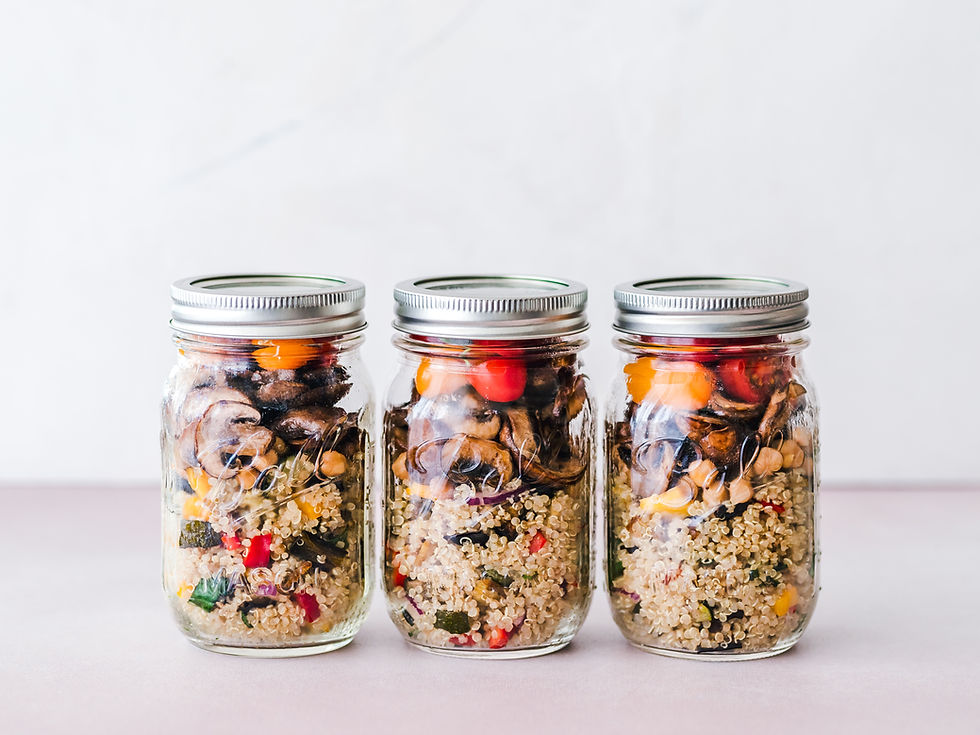If you're a fan of Indian cuisine, then you're probably familiar with turmeric, the spice that gives curry its distinctive yellow color. But did you know that turmeric contains a compound called curcumin, which has been shown to have powerful health benefits?

Curcumin is the active ingredient in turmeric, a spice used for centuries in traditional Indian and Chinese medicine. In recent years, there has been a growing interest in curcumin and its potential health benefits, with many studies showing its anti-inflammatory, neuroprotective, and heart-healthy properties.
In this blog post, we'll dive into the latest research on the benefits of curcumin, and explore different ways to incorporate this ancient spice into your diet to improve your overall health and wellbeing.
So, grab a cup of turmeric tea and let's get started!
Anti-Inflammatory Properties:
Curcumin, which is found in turmeric, is well-known for its anti-inflammatory benefits. Researchers have linked chronic inflammation to many health problems, including heart disease, cancer, and Alzheimer's disease.
A study recently published in the journal Nutrients found that curcumin, a natural supplement, can help reduce inflammation in people with metabolic syndrome. Metabolic syndrome is a condition that often precedes type 2 diabetes and heart disease.
Another study that was published in the Journal of Medicinal Food found that curcumin, which is found in turmeric, can help reduce the symptoms of osteoarthritis, which is a common form of arthritis.
Improved Brain Function:
Curcumin has also been shown to have neuroprotective properties, meaning it can help protect the brain from damage and improve cognitive function. In addition, studies have suggested that curcumin can help improve memory and cognitive function in people with Alzheimer's disease.
A study published in the Journal of Psychopharmacology found that curcumin supplementation can actually improve memory and attention in older adults.
Another study published in the American Journal of Geriatric Psychiatry found that curcumin, which is found in turmeric, can help improve mood and reduce symptoms of depression in older adults.
Heart Health:
Curcumin has been linked with potential benefits for heart health in numerous studies. A study that was published in the journal Nutrition, Metabolism & Cardiovascular Diseases found that curcumin supplementation can help lower blood pressure in people who suffer from hypertension.
Another study that was published in the journal Atherosclerosis found that curcumin can help improve endothelial function, and that is important for maintaining healthy blood vessels.
Ways to Incorporate Curcumin Into Your Diet:
So, how can you get curcumin into your diet? You can easily add turmeric to your food.
Turmeric can be used for flavoring in various dishes, such as curries, soups, and stews.
If you want to try something different, you can mix turmeric powder with hot milk and a sweetener of your choice to create a turmeric latte.
If you're looking for a more concentrated source of curcumin, you can also try taking a curcumin supplement in addition to your regular diet.
In conclusion, curcumin is a powerful compound with a wide range of health benefits. From reducing inflammation and improving brain function to supporting heart health, curcumin is a versatile spice that can help improve your overall health and wellbeing.
By incorporating turmeric into your diet or taking a curcumin supplement, you can reap the many benefits of this ancient spice.
As always, be sure to talk to your doctor before trying any new supplement or making significant changes to your diet.
Here are 3 rare and delicious food recipes using curcumin that you can try:
Golden Milk Latte

This is a warm and comforting drink that's perfect for chilly evenings.
To make it, heat up 1 cup of milk (almond, coconut, or cow's milk) in a saucepan.
Add 1/2 teaspoon of ground turmeric, a pinch of ground ginger, and a pinch of ground cinnamon.
Whisk until well combined and frothy.
Add honey or maple syrup to taste.
Serve hot and enjoy the soothing and anti-inflammatory properties of curcumin.
Turmeric Roasted Cauliflower

Roasted cauliflower is a simple and delicious side dish that pairs well with almost any main course.
To make it, preheat your oven to 400°F.
Cut a head of cauliflower into bite-sized florets and toss them with 2 tablespoons of olive oil, 1 teaspoon of ground turmeric, and salt and pepper to taste.
Spread the cauliflower out on a baking sheet and roast for 20-25 minutes, or until tender and golden brown.
Serve as a side dish or snack.
Curcumin Spiced Quinoa Salad

This is a healthy and flavorful salad that's perfect for a light lunch or dinner.
Cook 1 cup of quinoa according to the package instructions.
While the quinoa is cooking, chop up some fresh vegetables such as cucumbers, cherry tomatoes, and bell peppers.
In a small bowl, whisk together 2 tablespoons of olive oil, 1 tablespoon of lemon juice, 1 teaspoon of ground turmeric, and salt and pepper to taste.
Once the quinoa is cooked, fluff it with a fork and add it to a large bowl.
Add the chopped vegetables and the dressing, and toss to combine.
Serve chilled and enjoy the delicious and nutritious flavors of curcumin.
Comments